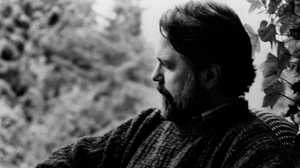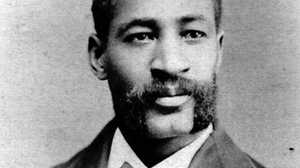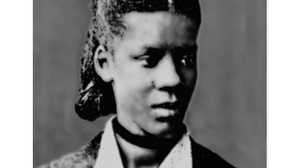Timeline of the Jubilee Singers
1863
January 1
President Lincoln signs the Emancipation Proclamation.
Although only freeing slaves in Confederate-controlled areas, Lincoln's proclamation made ending slavery a central issue of the Civil War. Almost 200,000 African Americans fought for the Union army over the following two and a half years.
March 3
Congress establishes the Freedmen's Bureau to assist former slaves. The Bureau of Refugees, Freedmen, and Abandoned Lands was created to attend to both the immediate and long-term needs of freedpeople in the South. Food, shelter, and medical attention were provided by Bureau agents, who also assisted ex-slaves in finding jobs and negotiating labor contracts. Although the Bureau was limited in its capacity to protect African Americans from racist violence, it is credited with setting up approximately fifty hospitals and helping establish between three and four thousand schools during its five years of existence.
1864
December 18
Congress ratifies the 13th Amendment to the Constitution, stating that "neither slavery nor involuntary servitude…shall exist within the United States." Lincoln's Emancipation Proclamation only applied to the Confederate states. On April 8, 1864, the Republican Senate voted by a large margin for passage of an amendment to abolish slavery once and for all throughout the country. It took over a year and half, however, for the measure to pass in the House.

1865
January 9
Fisk Free Colored School opens.
Fisk was housed in the buildings of a former U.S. army hospital in the midst of Nashville's African American community. On its opening day, Tennessee Governor W.G. Brownlow advised students to be "mild and temperate" in their behavior toward white people and warned Fisk's teachers to be "exceedingly prudent and cautious." The school enrolled 600 students by February and expanded rapidly.
April 15
President Lincoln dies after being shot by John Wilkes Booth the previous evening. Booth, a well-known actor and staunch Confederate, had conspired with two others to assassinate the president, vice president, and secretary of state. Lincoln was attending a performance at Ford's Theater in Washington, D.C., when he was shot. Fortunately, his co-conspirators failed to carry out their mission.
1866
April 9
Congress passes the Civil Rights Act, guaranteeing African Americans' legal equality with whites. The first important law to be enacted despite presidential veto, the Civil Rights Act forbid individual states from denying African Americans the rights of citizenship. It was enacted in response to Southern states' creation of Black Codes, which punished African Americans for crimes such as being without a job and preaching without a license. The codes, which varied from state to state, also limited blacks' mobility by preventing them from renting land anywhere but in rural areas and requiring them to sign and fulfill year-long labor contracts.
March 2
Howard University is officially incorporated by Congress.
Although originally conceived as a theological seminary for freedmen, Howard was incorporated as a liberal arts college open to women and men of all races. It became the third university in Washington, D.C. after Georgetown and George Washington Universities.
1868
April
Hampton Normal and Agricultural Institute opens in Hampton, Virginia. Like Fisk, Hampton was supported by the American Missionary Association and served as a major training ground for the thousands of African American teachers who helped establish or worked in schools for freedpeople during the years following Emancipation.
July 28
Congress adopts the 14th Amendment to the Constitution, guaranteeing all citizens "equal protection of the laws." The 14th Amendment threatened to reduce the number of representatives to Congress for any state that continued to prevent African American men from voting.
1869
Two African Americans are elected to Massachusetts House of Representatives. Edward G. Walker and Charles L. Mitchell were the first African Americans to serve in a legislative assembly.
1870
January 1
Ulysses S. Grant begins his first of two terms as president of the United States. After successfully leading the Union to victory in the Civil War, Grant was elected to office as a Republican. His presidency coincided with a national economic depression that began in 1873 and a corresponding backlash against Reconstruction policies in the South.
March 30
Ratification of the 15th Amendment makes African American men's right to vote a Constitutional guarantee. The 15th Amendment prohibited states from discriminating against citizens according to "race, color, or previous condition of servitude."
1871
October 6
The Jubilee Singers depart from Nashville for their first tour of the United States. George White had planned a route in keeping with the Underground Railroad, a network of churches and private homes throughout the Midwest and Northeast that had once provided shelter to escaped slaves on their way to free states or Canada. Beginning in Cincinnati, the Jubilee Singers traveled through Ohio, Pennsylvania, New York, Connecticut, Rhode Island, New Jersey, Massachusetts, Maryland, and Washington, D.C. over the next eighteen months, giving hundreds of performances and raising $40,000 for Fisk.
October 17
The last of a series of anti-Ku Klux Klan Enforcement Acts is passed, providing military protection to African Americans voting in federal elections. Democratic Southern states, knowing that African Americans would most likely vote Republican, had continued to subject blacks to violence at the ballot box. Increasingly, however, violence would be replaced with poll taxes, as well as literacy and property requirements, keeping both African Americans and poor whites from voting.

1872
March 5
The Jubilee Singers perform for President Grant at the White House. On the previous evening, the singers gave a concert for Vice President Schuyler Colfax and members of Congress. Despite their new popularity among political elites, the singers were kicked out of a D.C. hotel because of their race.
March 8
The Jubilee Singers perform at New York City’s Steinway Hall.
New Yorkers displayed great enthusiasm for the Jubilee Singers. Soon after performing at Henry Ward Beecher’s Plymouth Church in Brooklyn, they went to Steinway Hall, a major venue in downtown Manhattan. General Clinton B. Fisk, the American Missionary Association board member for whom Fisk University was named, attended this performance. He joked with the audience that one of the singers, Thomas Rutling, had once been a runaway valued at $450 but that now he was certainly worth more.
May 6
The Jubilee Singers give their first European concert in London.
The Seventh Earl of Shaftesbury, a famous social reformer in Britain, agreed to sponsor this concert on behalf of the Freedmen’s Missions Aid Society. Although the singers were nervous about this first performance in Britain, the concert went so well they were soon asked to sing for Queen Victoria, Prime Minister William Gladstone, and royal guests from all over Europe.
December 9
Pinckney B.S. Pinchback of Louisiana becomes the first African American state governor. Approximately 2,000 African Americans held public office during the twelve years following the Civil War. However, there would not be another African American governor in the U.S. until 1989.
1874
May 5
The Jubilee Singers set sail for the U.S. after raising $50,000 during a year-long British tour. This tour would be the last for baritone Isaac Dickerson, who stayed in Britain to attend the University of Edinburgh. Minnie Tate’s voice and Benjamin Holmes’ health had deteriorated so much that both were forced to quit the troupe upon their return to Nashville.

1875
May 15
The Jubilee Singers embark for a three-year European tour.
The Dutch flocked to see for the singers, earning the troupe $10,000 in Holland. President Cravath of Fisk joined the troupe in 1877 after its director, George White, became too sick to keep traveling. Ella Sheppard was persuaded to take over musical direction of the troupe during a successful, but exhausting, tour of Germany and Switzerland.
February
The Civil Rights Act prohibits the segregation of public facilities and the exclusion of African Americans from jury duty. This law was passed on the condition that schools and cemeteries would remain segregated. It was not enforced in the South and was struck down by the Supreme Court in 1883.
1876
October 13
Meharry Medical College, the nation's first school for the training of African American health care providers, opens in Nashville. The Freedmen's Aid Society of the Methodist Episcopal Church helped established Meharry as a department of Central Tennessee College. The school became independent in 1915.
1877
March 4
Republican Rutherford B. Hayes becomes president of the United States after agreeing to remove federal troops from the South.Hayes became president only after agreeing to cooperate with southern Democrats, who now controlled the House of Representatives. Two years later, Congress repealed the president's right to use troops at polling sites in order to guarantee African Americans' access to the ballot box. Reconstruction was over.
1878
April 3
The American Missionary Association cuts off the Jubilee Singers' funding. Although well-received in Germany, the singers had begun to fall into debt over the winter. Meanwhile, sympathy for freedmen in the U.S. had largely dissipated in the face of economic depression. The A.M.A., which had claimed the singers as its own when they were doing well, now refused to support them.
July 1
The Jubilee Singers disband after a final concert in Luneberg, Germany. Due to sickness and exhaustion among the singers, they had been forced to perform with as few as six out of eleven members during the months preceding their breakup. Thomas Rutling, who had been with the group since its founding, was too sick to participate even in their final concert. The group, minus three who elected to stay in Europe, sailed for home on July 6.
1879
September 26
A reorganized troupe of Fisk Jubilee Singers sets out for its first tour under the direction of George White and Frederick Loudin. With Loudin, this group toured the American West, Asia, Australia and New Zealand in the 1880s.







